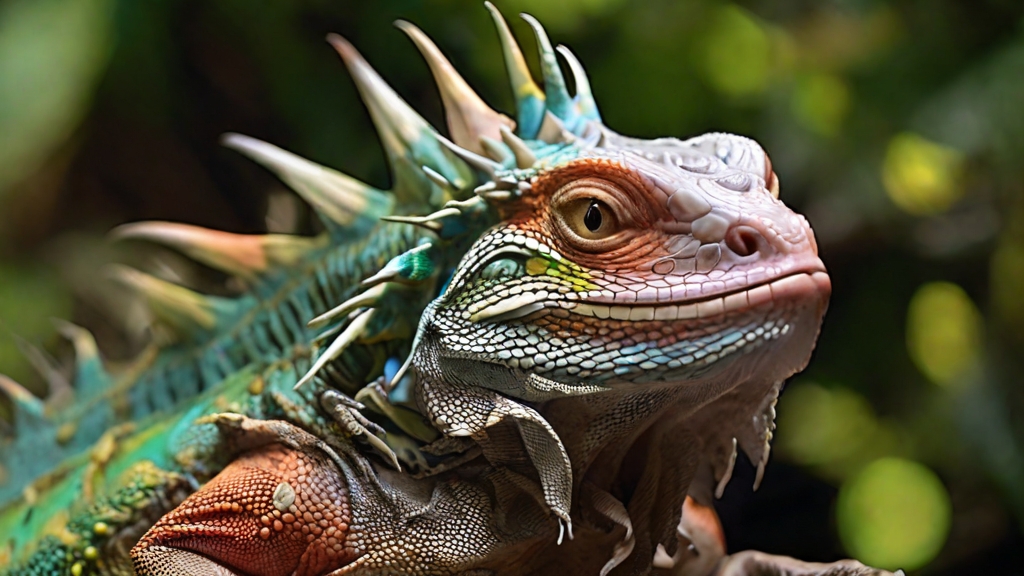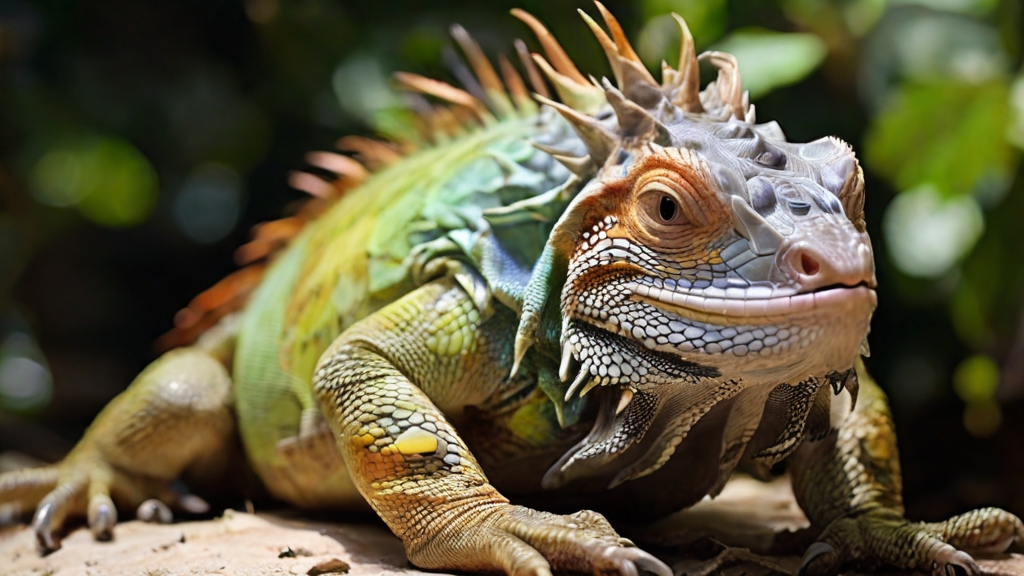Iguanas are fascinating and unique reptiles that can make rewarding pets for the right owner. But are they dangerous? It’s a question that many potential iguana owners ask, and it’s important to understand the potential risks and benefits of owning an iguana before making a commitment.
The Potential Risks of Owning an Iguana
Like any pet, iguanas have the potential to present certain risks to their owners. Some of the potential risks of owning an iguana include:
- Size and strength: Iguanas can grow to be quite large, with some individuals reaching lengths of up to six feet. While they are not aggressive animals, their
- size and strength can be intimidating, and they can cause injury if they accidentally strike someone with their tail or claws.
- Bite risk: While iguanas are not known to be aggressive, they can bite if they feel threatened or are mishandled. Iguanas have sharp teeth and powerful jaws, and their bites can cause serious injury.
- Salmonella risk: Iguanas, like all reptiles, can carry Salmonella bacteria, which can cause serious illness in humans. It’s important to handle iguanas with care and to wash your hands thoroughly after handling them in order to minimize the risk of Salmonella infection.
- The Potential Benefits of Owning an Iguana
- Despite the potential risks of owning an iguana, there are also many potential benefits to consider. Some of the benefits of owning an iguana include:
- Fascinating and unique pets: Iguanas are highly intelligent and curious animals, and they can be very rewarding pets for those who are willing to put in the time and effort to care for them properly.
- Low maintenance: Iguanas are generally low-maintenance pets, and they do not require as much attention or care as some other types of pets.
- Long lifespan: Iguanas can live for many years, with some individuals living upwards of 20 years in captivity. This means that they can be a long-term commitment, but it also means that you’ll have plenty of time to bond with and enjoy your iguana.
Time and Financial Commitments of Owning an Iguana
In addition to the potential risks and benefits of owning an iguana, there are also certain time and financial commitments to consider.
Owning an iguana requires daily care and attention, including providing a suitable enclosure, feeding a balanced diet, and cleaning their enclosure regularly.
It’s important to be prepared to commit the time and effort required to care for an iguana properly, as neglect can lead to serious health problems and shortened lifespan.
Financial costs are also something to consider when deciding whether to own an iguana. While iguanas are generally less expensive to care for than some other types of pets, they can still be a significant financial commitment.
Initial costs, such as the purchase price of the iguana and the cost of setting up an enclosure, can be significant. Ongoing costs, such as food, veterinary care, and supplies, should also be taken into account.
Legal Restrictions and Regulations for Owning an Iguana
Before bringing an iguana into your home, it’s important to check with your local authorities and ensure that you are in compliance with any relevant laws and regulations.
In some areas, it may be illegal to own an iguana, or there may be specific requirements for housing and care. It’s important to familiarize yourself with these requirements and ensure that you are in compliance before bringing an iguana into your home.
How to Care for Your Iguana Safely
If you decide to own an iguana, it’s important to take steps to ensure their safety and well-being. Here are some tips for caring for your iguana safely:
- Provide a suitable enclosure: Iguanas need plenty of space to move and explore, so make sure you provide an enclosure that is large enough to accommodate your iguana’s size and activity level.
- Offer a balanced diet: Iguanas need a diet that is rich in nutrients, including protein, fiber, and vitamins. Offer a variety of fresh vegetables, fruits, and leafy greens, and consider supplementing with a high-quality iguana pellet.
- Provide environmental enrichment: Iguanas are intelligent and curious creatures, so it’s important to offer them plenty of opportunities to engage with their surroundings. This can include providing climbing structures, hiding spots, and objects to explore and manipulate.
- Practice good hygiene: In order to minimize the risk of Salmonella infection, it’s important to handle your iguana with care and to wash your hands thoroughly after handling them. It’s also a good idea to regularly clean your iguana’s enclosure to help prevent the buildup of bacteria and other contaminants.
Tips for Safely Handling and Interacting with Your Iguana
In addition to providing proper care and housing for your iguana, it’s also important to handle and interact with your iguana safely. Here are some tips to keep in mind:
- Don’t handle your iguana immediately after feeding: Iguanas can be prone to regurgitation if they are handled too soon after eating, so it’s best to wait a few hours before handling your iguana after a meal.
- Be gentle and respectful: Iguanas are not aggressive animals, but they can be easily startled or stressed if they are handled roughly. Be gentle and respectful when handling your iguana, and never grab or squeeze them.
- Respect your iguana’s boundaries: Iguanas have personal space just like humans do, and it’s important to respect this space. If your iguana seems uncomfortable or agitated when you try to handle them, give them some space and try again later.
Conclusion:
Are iguanas dangerous? While they do present some potential risks, iguanas can also be fascinating and rewarding pets for those who are willing to care for them responsibly.
By understanding the potential risks and benefits of owning an iguana, and by taking steps to care for and handle your iguana safely, you can enjoy a happy and healthy relationship with your reptile friend.
In addition to the risks and benefits of owning an iguana, it’s also important to consider the time and financial commitments required, as well as any legal restrictions and regulations that may apply.
By being aware of these factors and being prepared to meet the challenges and responsibilities of owning an iguana, you can make an informed decision about whether these reptiles are right for you.
Do you have any other questions about whether iguanas are dangerous, or do you have any experiences with these reptiles that you’d like to share? Let us know in the comments section below!




